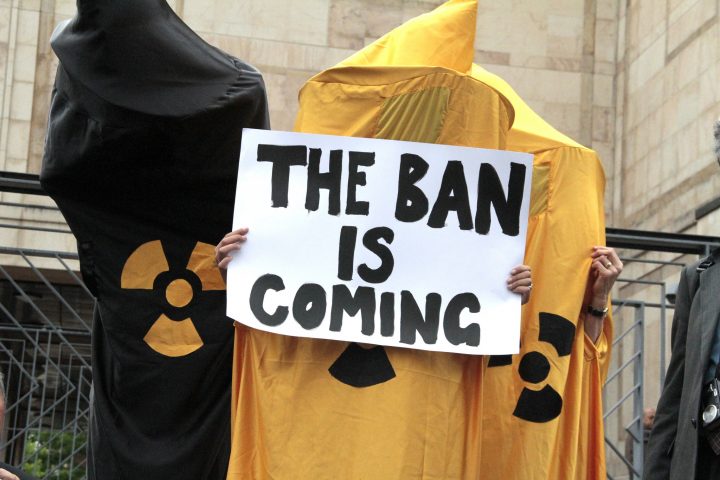Confidence the treaty will be completed by July 7 increases
ICAN welcomes today’s release of a draft treaty to ban nuclear weapons as an essential milestone in the years-long effort to ban these indiscriminate weapons of mass destruction and an important step towards their eventual elimination.
Beatrice Fihn, Executive Director of the International Campaign to Abolish Nuclear Weapons, said: “The draft language is strong and categorically prohibits nuclear weapons. The President of the negotiations, Ambassador Elayne Whyte Gomez, has captured the key elements agreed upon in March. And while we expect debate on the text as this process moves forward, we are confident that this text provides a good basis for adopting a treaty by July 7.”
“We are particularly happy the text is rooted in humanitarian principles and that it builds on previous prohibitions of unacceptable weapons, such as biological and chemical weapons, landmines and cluster munitions,” Fihn added.
Countries now face the task of finalizing the treaty at the second negotiation session, which begins on June 15 and ends on July 7.
“Now that we have a draft, nuclear-armed and nuclear-alliance states should take the opportunity to engage productively in these discussions. Failure to participate undermines any objection they might have once the document is complete. This is a test of their commitment to a world without nuclear weapons,” Fihn said.
Over 130 countries participated in the first negotiation session in March, when participants shared initial positions and goals for treaty language. Nearly all focused on the humanitarian cost of nuclear weapons use and the threat it poses to every country. Most also compared a nuclear weapons ban to previous bans on chemical and biological weapons, land mines, and cluster munitions, which have had significant impact and changed international behavior.
Fihn continued, “Nuclear weapons are ethically unacceptable in the 21st century. Intended to indiscriminately kill civilians, this 1940s technology is putting countless of lives at risk every day. Their continued existence undermines the moral credibility of every country which relies on them. A treaty to ban them, as a first step towards their elimination, will have real and lasting impact.”










